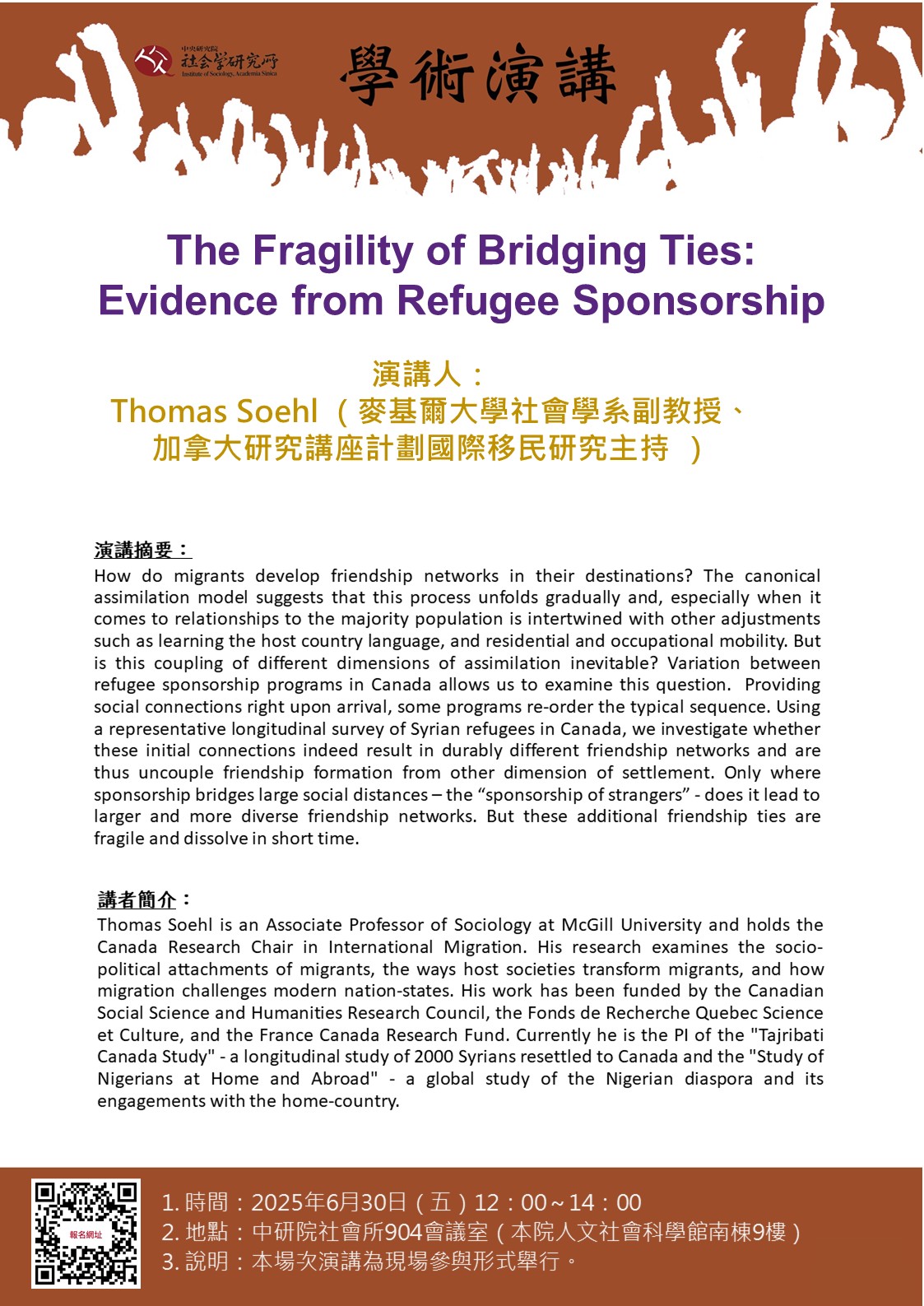- Lectures
- Institute of Sociology
- Location
Conference Room 904, Institute of Sociology, Academia Sinica (9th Floor, South Wing, Humanities and Social Sciences Building)
- Speaker Name
Thomas Soehl(Canada Research Chair in International Migration, McGill University)
- State
Definitive
- Url
Abstract:
How do migrants develop friendship networks in their destinations? The canonical assimilation model suggests that this process unfolds gradually and, especially when it comes to relationships to the majority population is intertwined with other adjustments such as learning the host country language, and residential and occupational mobility. But is this coupling of different dimensions of assimilation inevitable? Variation between refugee sponsorship programs in Canada allows us to examine this question. Providing social connections right upon arrival, some programs re-order the typical sequence. Using a representative longitudinal survey of Syrian refugees in Canada, we investigate whether these initial connections indeed result in durably different friendship networks and are thus uncouple friendship formation from other dimension of settlement. Only where sponsorship bridges large social distances – the “sponsorship of strangers” – does it lead to larger and more diverse friendship networks. But these additional friendship ties are fragile and dissolve in short time.
Bio:
Thomas Soehl is an Associate Professor of Sociology at McGill University and holds the Canada Research Chair in International Migration. His research examines the socio-political attachments of migrants, the ways host societies transform migrants, and how migration challenges modern nation-states. His work has been funded by the Canadian Social Science and Humanities Research Council, the Fonds de Recherche Quebec Science et Culture, and the France Canada Research Fund. Currently he is the PI of the "Tajribati Canada Study" – a longitudinal study of 2000 Syrians resettled to Canada and the "Study of Nigerians at Home and Abroad" – a global study of the Nigerian diaspora and its engagements with the home-country.
Note:
Participation is limited to in-person attendees.









 Home
Home

